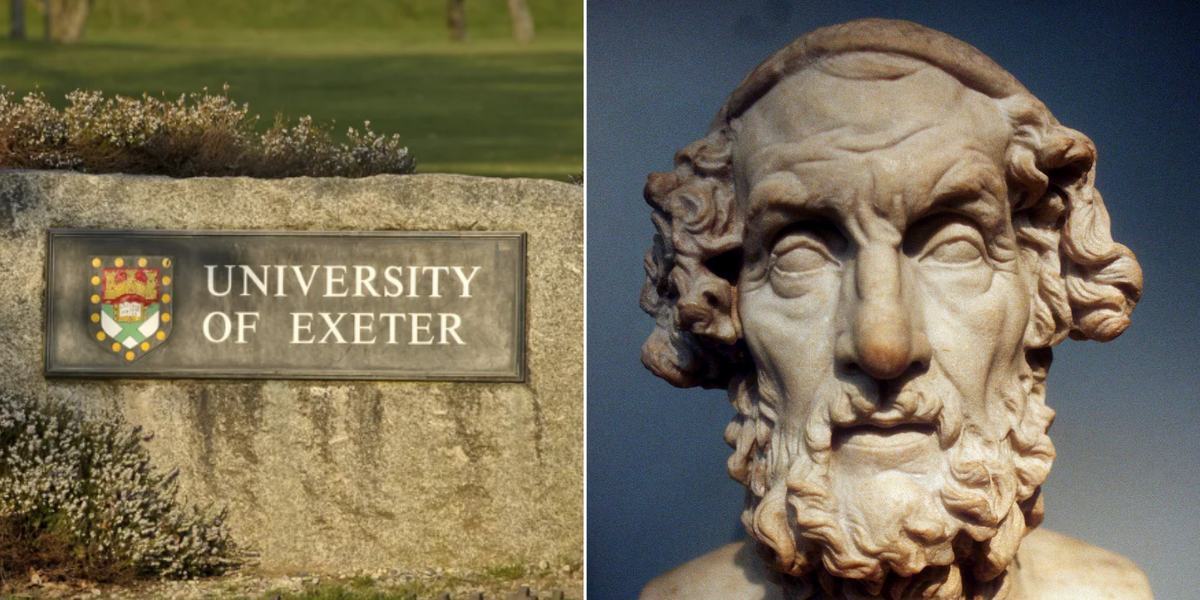A university has hit ancient Greek classics with a trigger warning for “distressing” content that could make students feel uncomfortable.
The University of Exeter has received backlash for telling undergraduate students they may “encounter views and content that they may find uncomfortable” in Homer’s epic poems The Iliad and The Odyssey.
In a move branded as “bonkers,” students taking the module Women in Homer were told the material could be “challenging”.
Containing references to rape and sexual violence, students were also told they should “feel free to deal with it in ways that help” if the content is “causing distress”.
The University of Exeter has hit ancient Greek classics with a trigger warning
PA
The advice, which has been ridiculed by experts, said affected students could leave the classroom or contact wellbeing.
Former Prime Minister Boris Johnson, who read classics at the University of Oxford, said Homer’s poems provided the “foundation of Western literature.”
He hit out at the university’s warnings, saying: “Exeter University should withdraw its absurd warnings. Are they really saying that their students are so wet, so feeble-minded and so generally namby-pamby that they can’t enjoy Homer?
“Is the faculty of Exeter University really saying that its students are the most quivering and pathetic in the entire 28 centuries of Homeric studies?”
MORE LIKE THIS:
Other experts have also chimed in, with historian Lord Andrew Robert saying students should not be “wrapped in cotton wool and essentially warned against ancient but central texts of the Western canon”.
Frank Furedi, emeritus professor of sociology at the University of Kent added that the university had become “morally disoriented”.
A Short History of War author Jeremy Black called the measure a “parody.”
The University of Exeter’s move comes as a growing number of literary works are being given trigger warnings.
Last year reports emerged that Of Mice and Men by John Steinbeck was being removed from Welsh GCSE curriculum for “psychological and emotional” harm caused by its racial slurs.
Students taking the module Women in Homer were told the material could be “challenging”
Getty
In October, the University of Nottingham also faced scrutiny for warning students of The Canterbury Tales’ “expressions of Christian faith”.
A spokesman from the University of Exeter said: “The University strongly supports both academic freedom and freedom of speech, and accepts that this means students may encounter views and content that they may find uncomfortable during their studies.”
“Academics may choose to include a content warning on specific modules if they feel some students may find some of the material challenging or distressing.”
“Any decision made to include a content warning is made by the academics involved in delivering the modules, and these help ensure students who may be affected by specific issues are not subjected to any potential unnecessary distress.”




